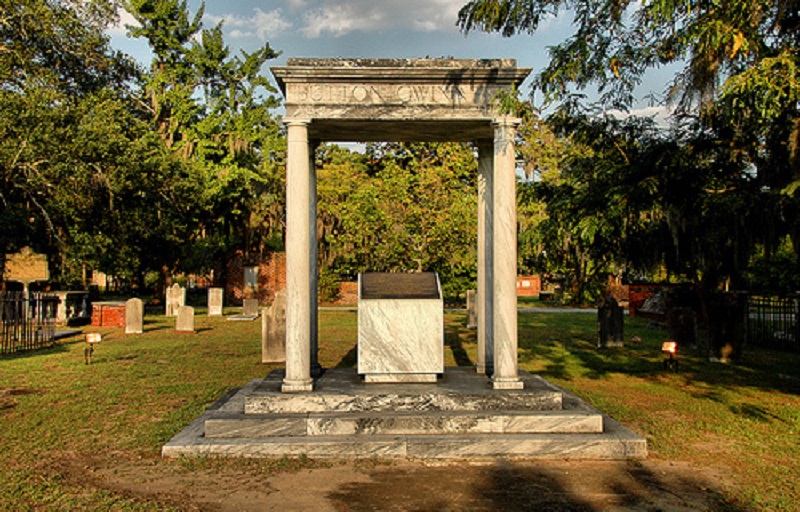
I remember walking, tourist-like, through an old cemetery in Savanah, Georgia on a weekend road trip while at FLETC. I just like old cemeteries. One of the saddest benevolent lies is found there: “Gone but not forgotten”. As I scanned the ancient headstones, I notice that there seemed to be one that had garnered special attention. I moved closer and began to read that this was the resting place of the remains of one Button Gwinnett, one of the original signers of the Declaration of Independence. I inhaled with whispered “Wow” and suddenly felt that I was on an especially sacred patch of ground.
There is hardly a culture where remembrance is not a part. As the son of a WWII soldier part of my DNA is saluting the flag, wearing the poppy pin, and standing at attention at somber ceremonies remembering the fallen. We are compelled to remember our heroes. Even our collective American guilt over our treatment of our Vietnam soldiers blossomed into yellow ribbons for our Iraq war veterans and we finally invited those Vietnam conflict era veterans to the party.
When a police officer dies, we offer a final parade more massive than any Presidential motorcade. Their name is engraved in our nation’s capital and perhaps in state and local monuments. Even in the current era of hostility toward law enforcement, local communities find an outpouring of support when a police officer is killed. Flowers, cards, and teddy bears cover the places where the blood was spilled.
And that is as it should be. Never forget. Never forget.
Then we look around at those memorials and see in the crowd the wheelchair bound former police officer whose career was derailed by a line of duty injury. We see those with the slight, tell-tale limp of a prosthetic. We see one with the stoic expression well practiced to mask the pulsing winces of chronic pain. We don’t see the ones still in their hospital beds attached to tubes and monitors. We don’t see the ones at the rehab center learning how to walk again. We don’t see the ones whose injuries were once described in the newspaper as “non-life threatening” sitting in the darkness trying to talk their own brain out of a panic.
It’s not a competition between those survivors of a line of duty death of a loved one and those who are called into a life of caring for a living survivor. Children left without a mother or father, and children whose lives have also been changed and now must adjust to a mother or father who simply cannot be who they once were, have their own grief and loss to bear. It isn’t fair to measure the feeling of abandonment by the family of a line of duty death when the thin blue line breaks with the passage of time against the feeling of abandonment when an officer’s injury makes them of no use to their agency and they become unemployed and uninsured.
But for the catastrophically injured to be forgotten during a time declared by Presidential proclamation to be devoted to both the dead and wounded is for us to fail in our remembrance of the totality of heroism and sacrifice.
To forget those law enforcement veterans robs our culture, both as a profession and as a nation, of the completeness of our honor to those who have served with utmost devotion.
If we forget the hurting of any hero, we may forget the fullness of our own willingness to give all. For behind every dead and wounded police officer stands the living, serving, able ones ready to make that same journey out of safety and into danger. We see it every day. Only by honoring all of those who have given much can we stand resolute to carry on.
*Police week honors the fallen. Let us also honor and help those who fell and are still working to rise up again.